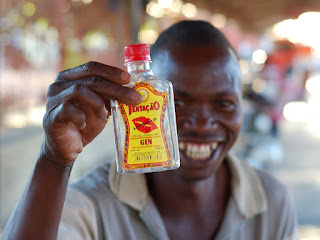Political Tensions Rise in Mozambique Over Election Aftermath
Mondlane Accuses Podemos of Betrayal
Mozambique's political landscape has been rocked by controversy following the general elections in October. The Optimist Party for the Development of Mozambique (Podemos), which supported presidential hopeful Venâncio Mondlane, has now accused him of "seriously" breaching their pre-election pact. In a statement released on Monday, Podemos rejected Mondlane's claims of betrayal, asserting their adherence to the agreed terms while highlighting Mondlane's multiple violations since the campaign period began.
Podemos Defends Parliamentary Oath
Dinis Tivane, an advisor close to Mondlane, who continues to dispute the election results announced by the Constitutional Council (CC), called the swearing-in of Podemos's parliamentarians a "betrayal" on January 3. Mondlane himself accused the Podemos president of breaking their pre-election agreement by allowing these officials to take office, despite the party having no previous parliamentary representation.
Agreement Disputes Intensify
Mondlane, in a statement distributed to various stakeholders, reminded them of the coalition agreement signed on August 21, which was meant to last until 2028. This agreement, according to Mondlane, was supposed to dictate the political maneuvers of Podemos. In response, Podemos emphasized that their relationship with Mondlane was grounded in a legally binding and voluntary political agreement, which they claim both parties must honor.
Podemos "Stands Firm" on Legal Grounds
Podemos insists that their MPs will be sworn in, maintaining that this action aligns with legal and constitutional norms. They argue that not taking the oath would mean relinquishing their parliamentary mandate, as outlined in the Assembly's rules of procedure, thus contradicting claims of betrayal by Tivane.
Mozambique's New Political Landscape
The CC officially validated the election results on December 23, positioning Podemos as the leading opposition in the new parliament, which will see its members sworn in on January 13. This marks a significant shift since Renamo had held the main opposition status since Mozambique's first multiparty elections in 1994. With Frelimo securing 171 seats, they maintain a strong parliamentary majority, while Renamo's representation has dwindled to 28 seats.
Post-Election Unrest
The proclamation of Daniel Chapo from Frelimo as the winner with 65.17% of the vote has not quelled public unrest. Protests led by Mondlane, claiming electoral fraud and demanding a reevaluation of the election outcomes, have turned violent, leading to approximately 300 deaths and over 500 injuries from police confrontations. This reflects a profound national division and distrust in the electoral process.

Comments
Post a Comment
What do you think 🤔?